


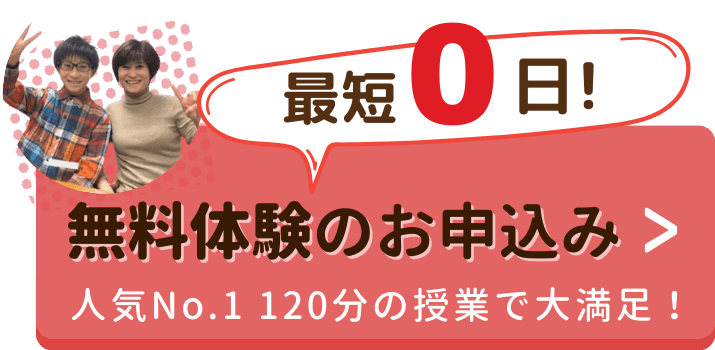
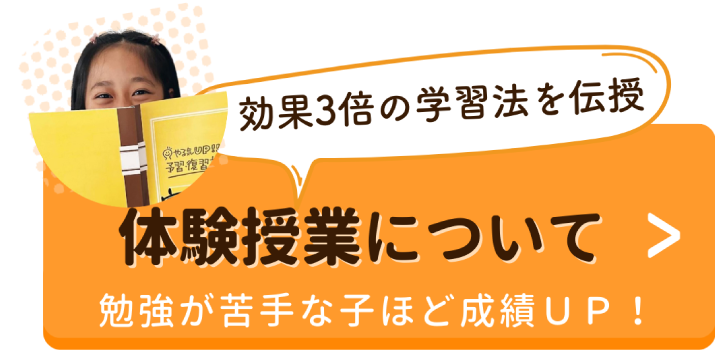
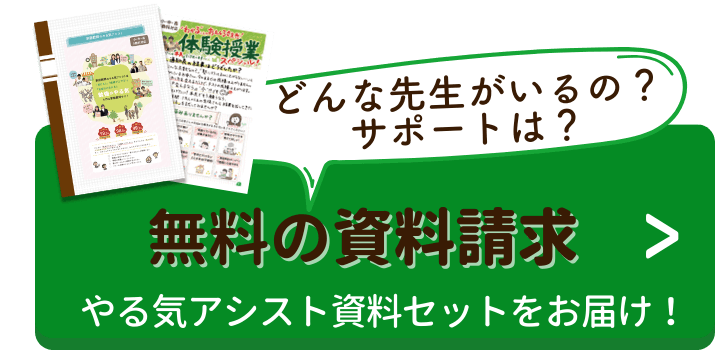

栃木県の2023年3月実施の令和5年度(2023年度)入学者の公立高校入試問題の解説をしています。
受験勉強において、過去問を解くことはとても効果的な勉強法です。ぜひ、受験までに一度挑戦し、問題の傾向を掴んでおきましょう。合わせて、
対策などをたてられるととても良いですね。
また、過去問で苦手な点が見つかった場合は、そこを中心に試験日当日までにしっかりと対策しておきましょう。
これから聞き方の問題に入ります。問題用紙の四角で囲まれた1番を見なさい。問題は1番、2番、3番の三つあります。
最初は1番の問題です。問題は(1)から(4)まで四つあります。英語の対話とその内容についての質間を聞いて、答えとして最も適切なものをア、イ、ウ、エのうちから一つ選びなさい。対話と質問は2回ずつ言います。
では、はじめます
(1)の問題です。
A: Hi, Cathy. Welcome to my house. Did you see my dog, Hachi, outside?
B: Hi, Kazuma. Yes, I saw Hachi under the tree in your garden.
A: Really? He is so quiet today. Was he sleeping?
B: No, he was playing with a ball.
質問です。
Q: What was Hachi doing when Cathy came to Kazuma’s house?
(2)の問題です。
A: Hi, Tomoki. We have to finish our report by July 19th. How about doing it together next Saturday?
B: You mean July 8th? Sorry, Meg. I’ll be busy on that day. How about Sunday, July 9th?
A: Oh, I have a piano lesson in the afternoon every Sunday, but I have time in the morning.
B: OK. See you then!
質問です。
Q: When will Tomoki and Meg do their report together?
(3)の問題です。
A: Hi, Satoshi. Did you see Mr. Suzuki? I went to the teachers’ room, but he wasn’t there.
B: Hi, Sarah. He is on the school grounds. Why do you want to see him?
A: I have to take my notebook to him because I couldn’t give it to him yesterday.
B: I see. I’m sure he’s still there.
質問です
Q: What does Sarah have to do?
(4)の問題です。
A: Hello, Koji. This is Kate. Where are you now?
B: Hi, Kate. I’m at home. I’m watching a baseball game on TV.
A: What? We are going to go to the museum today. Did you forget that?
B: Oh no! I’m so sorry. Can you wait for me at the bookstore near the museum? I’ll meet you there soon.
質問です。
Q: Where will Koji meet Kate?
次は2番の問題です。英語の対話とその内容についての質問を聞いて、答えとして最も適切なものをア、イ、ウ、エのうちから一つ選
間は(1)から(3)まで三つあります。対話と質問は2回ずつ言います。
では始めます。
Miho: We’ve arrived at my brother’s high school! Thank you for coming with me, Alex.
Alex: Thank you, Miho. This is my first time to come to a school festival in Japan. Your brother will play the guitar on the stage,right?
Miho: Yes. He can play it very well. Alex, look. Here is the information about the events of the festival.
Alex: Your brother’s performance will start at 10 a.m. in the Gym, right?
Miho: Yes. After his performance, what do you want to see?
Alex: Welt, I love Japanese culture, so I want to try calligraphy. How about you?
Miho: Actually, I’m interested in the performance by the dance club, but both of the events will start at the same time.
Aler. How about seeing the dance in the morning and trying calligraphy in the afternoon?
Miho: Perfect! Thank you.
Alex: I’m also interested in science. Let’s go to see Science Show after that.
Miho: That’s a good idea. By the way, before we join Calligraphy Experience, let’s go to the Cooking Room to eat lunch.
Alex: Nice! We’ll be hungry. I’ll eat sandwiches.
Miho: I want to eat curry and rice because it’s my favorite food!
Alex: Now let’s go to the Gym first!
(1)の質問です。
Where will Miho and Alex be at 1:00 p.m.?
(2)の質問です
What time will Miho and Alex see Science Show?
(3)の質問です。
Which is true about Miho?
次は3番の問題です。あなたは今、海外留学プログラムでイギリスに来ています。ある城についてのガイドの説明を聞いて、英語で感想文を書くためのメモを完成させなさい。ただし。メモの(1)には数字を入れ、(2)と(3)には英語を入れなさい。英文は2回言います。
では始めます。
OK, everyone. This is Green Wing Castle. It was built in 1723. Now let’s go inside. There are more than fou hundred rooms in the castle. Let’s go into this room first. Look at this picture. The man in this picture lived in this castle He had a big family. He had five sons and five daughters. Let’s go to another room. This room is very large, isn’t it People enjoyed parties here. Next, look at the West Tower. We can see the beautiful city from the top of the tower. Now, we’ll have some time to walk around the castle. Please enjoy it!
これは聞き方の問題である。指示に従って答えなさい。
1(英語の対話とその内容についての質間を聞いて、答えとして最も適切なものを選ぶ問題)
(1)
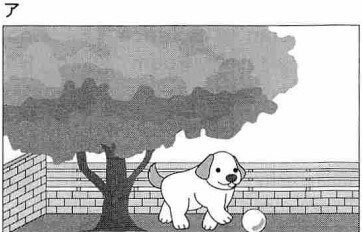
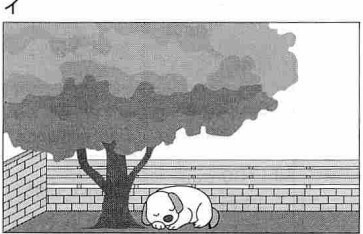
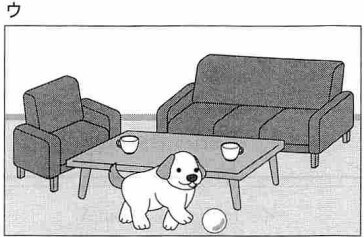
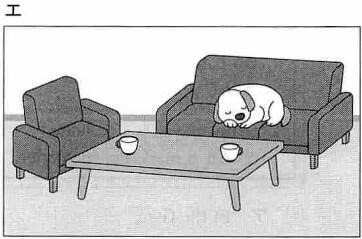
(2)
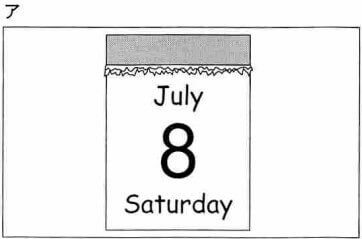
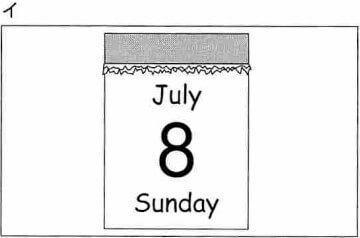
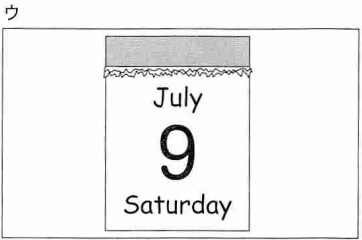
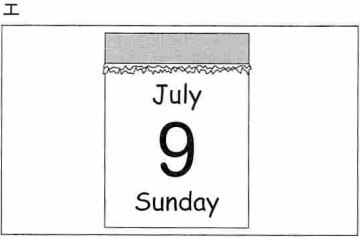
(3)
ア Find the teacher’s notebook.
イ Give her notebook to the teacher.
ウ Go to the teachers’ room.
エ Play soccer with the teacher.
(4)
ア At Kate’s house.
イ At the baseball stadium.
ウ At the bookstore.
エ At the museum.
2〔英語の対話とその内容についての質問を聞いて、答えとして最も適切なものを選ぶ問題)
| Time \ Place | Gym | Classroom A | Science Room | Cooking Room |
| 10:00 a.m.~ 10:45 a.m | Guitar Performance | / | Science Show | 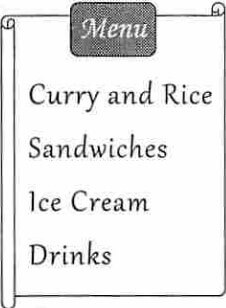 |
| 11:00 a.m.~ 11:45 a.m | Dance Club | Calligraphy Experience | Science Show | |
| 1:00 p.m.~ 1:45 p.m | Chorus Club | Calligraphy Experience | Science Show | |
| 2:00 p.m.~ 2:45 p.m | Piano Performance | / | Science Show | |
(1)
ア In the Gym.
イ In the Science Room.
ウ In the Gym.
エ In the Science Room.
(2)
ア 10:00 a.m. ~ 10:45 a.m.
イ 11:00 a.m. ~ 11:45 a.m.
ウ 1:00 p.m. ~ 1:45 p.m.
エ 2:00 p.m. ~ 2:45 p.m.
(3)
ア Miho recommends Calligraphy Experience to Alex.
イ Miho recommends sandwiches to Alex.
ウ Miho suggests where to go after lunch.
エ Miho suggests where to go for lunch.
3(英語の説明を聞いて、メモを完成させる問題)
メモの(1)には数字を入れ、(2)と(3)には英語を入れなさい。
Green Wing Castle
• It was built in【(1)】
• More than 400 rooms.
• The man in the picture had 10 【(2)】
• People enjoyed parties in the large room.
•The West Tower – We can see the【(3)】
1 (1) ア (2) エ (3) イ (4) ウ
2 (1) イ (2) エ (3) エ
3 (1) 1723 (2) children(kids) (3)beautiful
次の1、2の問いに答えなさい。
1 次の英文中の【(1)】から【(6)】に入る語として、下の(1)から(6)のア、イ、ウ、エのうち、それぞれ最も適切なものはどれか。
Hello, everyone. Do you like【 (1) 】movies?
Me? Yes, I 【(2)】. I’ll introduce
my favorite movie. It is “The Traveling of the Amazing Girl.” The story is【(3)】 a girl
who travels through time. Some troubles happen, but she can solve【(4)】The story is
【(5)】 , and the music is also exciting. The movie was made a long time ago, but even
now it is very popular. It is a great movie. If you were the girl, what 【(6)】 you do?
(1) ア watch
イ watches
ウ watching
エ watched
(2) アam
イdo
ウ is
エ does
(3) ア about
イin
ウ to
エ with
(4)ア they
イ their
ウ them
エ theirs
(5) ア empty
イ fantastic
ウ narrow
エ terrible
(6) ア can
イ may
ウ must
エ would
2 次の(1)、(2)、(3)の( )内の語句を意味が通るように並べかえて、(1)と(2)はア、イ、ウ、エ、(3)はア、イ、ウ、エ、オの記号を用いて答えなさい。
(1)
A: Is Tom the tallest in thig class?
B: No. He ( ア tall イ not ウ as エ is ) as Ken.
(2)
A: I hear so many ( ア be イ can ウ seen エ stars ) from the top of the mountain.
B: Really? Let’s go to see them.
(3)
A: What sport do you like?
B: Judo! Actually I ( ア been イ have ウ practing エ since オ judo ) I was five years old.
1
(1) ウ
likeの後には動名詞(~ing)か助動詞(to ~)が入る。
(2) イ
Do you like watching movies? に対する筆者の答え。
(3) ア
~についてという意味のaboutが入る。
(4) ウ
Some troubleを指示語で表したthemが適切。
(5) イ
empty:空っぽの、fantastic:素晴らしい、narrow:狭い、terrible:とても不快な
(6) エ
if節内で過去形が使われているので、仮定法過去の用法である。
2
(1)エ→イ→ウ→ア
答えはHe is not as tall as Ken.(彼はケンほど背が高くありません。)比較級の「as … as」を使った否定形。「not as … as」は、「〜ほど…ではない」という意味を表し、「トムはケンほど背が高くない」ということを表現。
(2)エ→イ→ア→ウ
答えはI hear so many stars can be seen from the top of the mountain.(山頂からとてもたくさんの星が見えると聞きました。)
「can be seen」が受動態になっている。
(3)イ→ア→ウ→オ→エ
答えはActually, I have been practicing judo since I was five years old.(実は、5歳の時から柔道を練習しています。)
「have been ~ing」が現在完了進行形。動作が始まった時点を表す「since」は、「5歳の時から」という時間を表す節「since I was five years old」を導く。
次の英文を読んで、1.2.3.4の問いに答えなさい。
When people in Japan want to decide who wins or who goes first quickly, they often play a hand game called *Janken. They use three hand gestures to play the game. A closed hand means a *rock, an open hand means paper, and a closed hand with the *extended *index and middle fingers means *scissors. A rock breaks scissors, so the rock wins. Also, scissors cut paper, and paper covers a rock. It is ( )
the rules, so many people can play Janken
This kind of hand game is played in many countries all around the world. Most of the people use three hand gestures, but some people use more than three. In *France, people use four hand gestures. People in *Malaysia sometimes use five hand
gestures.
In other countries, people use hand gestures which are【 A 】 from the ones used in Japan. In *Indonesia, a closed hand with the extended *thumb means an elephant, a closed hand with the extended index finger means a person, and a closed hand with the extended
*little finger means an *ant. In their rules, an elephant *beats a person, because it is larger and stronger. In the same way, a person beats an ant. But how can a small ant beat a big elephant? Can you imagine the reason? An ant can get into an elephant’s ears and nose, and the elephant doesn’t like that.
Isn’t it interesting to know that there are many kinds of hand games like Janken around the world? Even when the hand gestures and their meanings are 【 A 】, people can enjoy them. If you go to foreign countries in the future, ask the local people how they play their hand games. And why don’t you introduce yours and play the games with them? Then that may be 【 B 】.
1 本文中の( )に入るものとして、最も適切なものはどれか。
ア difficult to decide
イ easy to understand
ウ free to break
エ necessary to change
2 本文中の二つの【 A 】には同じ英語が入る。適切な英語を1語で書きなさい。
3 本文中の下線部の内容を、次の[ ]が表すように、( )に入る25字程度の日本語を普きなさい。ただし、句読点も字数に加えるものとする。
[アリは( )から、アリがゾウに勝つ。 ]
4 本文中の【 B 】に入るものとして、最も適切なものはどうか。
ア a good way to learn the culture and history of Japan
イ a good way to decide which hand gesture is the best
ウ a good start for communicating with people all over the world
エ a good start for knowing how you can always win at hand games
(本文和訳)日本の人々は、誰が勝ちか、もしくは誰がまず初めにいくかを決めたい時、たいてい「じゃんけん」と呼ばれる手を使ったゲームをします。そのゲームでは、3つの手を使ったジェスチャーを使います。手を握ると石を、手を開くと紙を、手を握って人差し指と中指を伸ばすとはさみを意味します。石ははさみを壊すので、石の勝ち。また、はさみは紙を切り、紙は石を覆います。ルールを理解することは簡単なので、多くの人々は「じゃんけん」をすることができます。 このような種類の手を使ったゲームは、世界中の多くの国で遊ばれています。多くの人々は3つの手のジェスチャーを使いますが、3つ以上のジェスチャーを使う人々もいます。フランスでは、人々は4つの手のジェスチャーを使います。マレーシアの人々は時々、5つの手を使ったジェスチャーを使います。 他の国では、日本で使われているのとは異なる手のジェスチャーを使用します。インドネシアでは、手を握って親指を伸ばすとゾウを意味し、手を握って人差し指を伸ばすとヒトを意味し、手を握って小指を伸ばすとアリを意味します。彼らのルールでは、より大きくより力強いため、ゾウはヒトを打ち負かします。同様に、ヒトはアリを打ち負かします。しかし、小さいアリは大きいゾウを打ち負かすことができるのでしょうか?その理由を想像できますか?アリはゾウの耳と鼻に入ることができ、ゾウはそれを嫌がります。 たくさんの種類のじゃんけんのような手を使ったゲームが世界中にあることをしることは興味深くないですか?手のジェスチャーとそれらの意味が異なるときでも、人々は楽しむことができます。もしあなたが将来海外に行ったら、地元の人々に手を使ったゲームをどのようにするのか聞いてみてください。そして、じゃんけんを紹介し、一緒に遊んでみてはどうですか?それは、世界中の人々とコミュニケーションをとる良いスタートになるかもしれません。
1 イ
2 例:different
different from ~ で~と異なる
3 (アリは)ゾウの耳や鼻の中に入ることができ、ゾウはそれを嫌がる (から、アリがゾウに勝つ。)
下線部the reason は、前の分のhow can a small ant beat a big elephant? を指している。
4 ウ
ア:日本の文化や歴史を学ぶための良い方法
イ:どの手のジェスチャーが最適かを決めるための良い方法
ウ:世界中の人々とコミュニケーションを取るための良い出発点
エ:ハンドゲームで常に勝つ方法を知るための良い出発点
主人公である修二(Shuj)と、その同級生の竜也(Tatsuya)について書かれた次の英文を読んで、1から5までの問いに答えなさい。
I met Tatsuya when I was 7 years old. We joined a badminton club then. I was good at sports, so I improved my *skills for badminton soon. Tatsuya was not a good player, but he always practiced hard and said, “I can do it! I will win next time.” He even said, “I will be the
*champion of badminton in Japan.” I also had a dream to become the champion, but I [ ] such words because I thought it was *embarrassing to do that.
When I won against him, he always said to me, “Shuji, let’s play one more game. I will win next time.” I never lost against him, but I felt he was improving his skills.
When we were 11 years old, the situation changed. In a city tournament, I played a badminton game against Tatsuya. Before the game, he said to me. “Shuji, I will win this time.” I thought I would win against him easily because I never lost against him. However, I couldn’t. I lost against him *for the first time. I never thought that would happen so soon.
He smiled and said, “I finally won!” Then I started to practice badminton harder because I didn’t want to lose again.
When we were junior high school students, we played several badminton games, but I couldn’t win even once.
Tatsuya became strong and joined the *national badminton
tournament, so I went to watch his games. In the tournament, his play was great. Sometimes he *made mistakes in the games, but then, he said.
“It’s OK! I will not make the same
mistake again!” He even said, “I will be the champion!” I thought, “He hasn’t changed since he was a beginner.”
Finally, Tatsuya really became the champion of badminton in Japan. After the tournament, I asked him why he became so strong. He said, “Shuji, I always say that I will be the champion. Do you know why? When we say our goals out loud, our *mind and body move to reach the goals. In fact, by saying that I will be the champion, I can practice hard. and that helps me play better. The words I say make me strong.” I realized that those words gave him the ( p ) to reach the goal. On that day, I decided to say my goal and
practice hard to reach it.
Now 1 am 18 years old and I am ready to win the national tournament. Now I am standing on the *court to play a game against Tatsuya in the *final of the national badminton tournament. I have changed. I am going to say to Tatsuya, “I will win this time. I will be the champion.”
1 本文中の [ ] に入る適切な英語を2語または3語で書きなさい。
2 本文中の下線部の指す内容は何か。日本語で書きなさい。
3 本文中の ( ) に入る適切な英語を1語で書きなさい。ただし、( ) 内に示されている文字で き始め、その文字も含めて答えること。
4 次の文は、本文中の最後の段落に番かれた出来事の翌日に、竜也が修二に宛てて送ったメールの内容である。( A )、( B )に入る語の組み合わせとして、最も適切なものはどれか。
Hi Shuji
*Congratulations.
Now you are the champion, my friend.
You’ve become my goal again.
You were always my goal when I was little.
I remember I was very ( A ) when I won against you for the first time.
At that time, you told me that it was embarrassing for you to say your goal.
So I was ( B ) when you said to me, “I will be the champion.”
This time I lost, but I will win next time.
Your friend,
Tatsuya
ア A: sorry ー B : bored
イ A : sad ー B : excited
ウ A : happy ー B: lonely
エ A : glad ー B: surprised
5 本文の内容と一致するものはどれか。
ア Shuji played badminton better than Tatsuya when they began to play it.
イ Tatsuya asked Shuji to practice hard and become the champion in Japan.
ウ Shuji thought Tatsuya would win against Shuji in the national tournament.
エ Tatsuya decided to say his goal out loud because Shuji told Tatsuya to do so.
(本文和訳)私が7歳の時、竜也に会いました。私たちはバドミントンクラブに参加しました。私はスポーツが上手だったので、バドミントンの技術はすぐに上達しました。竜也は上手な選手ではなかったが、いつも一生懸命に練習し、「私はできる!次回は私が勝つでしょう。」といった。彼は、「私は日本のバドミントンのチャンピオンになるでしょう」とも言った。私もまたチャンピオンになるという夢を持っていたが、恥ずかしいと考えたので、そのような言葉を言わなかった。私が彼に対して勝った時、彼はいつも私に、「修二、もう一回ゲームをしよう。次は私が勝つでしょう。」と言った。私は彼に対して負けたことは一度もないが、彼は技術を磨き続けていると感じた。 私たちが11歳の時、その状況は変わった。市の大会で、竜也を相手にバドミントンの試合をした。試合の前に、竜也は私に「修二、今回は私が勝つだろう。」と言った。私は彼に負けたことがなかったので、簡単に勝てるだろうと考えた。しかしながら、できなかった。初めて彼に負けた。私は、それがそんなに早く起こるとは一度も思わなかった。彼は微笑み、「ようやく勝った!」と言った。それから、もう一度負けたくなかったので、私は一生懸命にバドミントンの練習をし始めた。 私たちが中学生の時、私たちは何度もバドミントンのゲームをしたが、一度も勝つことができなかった。竜也は強くなり、バドミントンの全国大会に出場したので、私は彼の試合を見に行った。大会での彼のプレーはすごかった。時々ゲームの中でミスをしたが、しかしそのあと、彼は、「大丈夫!もう一度同じミスをすることはないだろう!」と言った。「私はチャンピオンになれるだろう!」とさえも言った。私は、「彼は初心者の時から変わっていない」と考えた。 ついに、竜也は本当にバドミントンの日本のチャンピオンになった。大会後、私は彼になぜそんなに強くなったのか聞いた。彼は、「修二、私はいつもチャンピオンになるだろうと言う。その理由が分かる?目標を声に出すと、心と体は目標を達成するために動く。実際、チャンピオンになるだろうと言うと、一生懸命に練習することができ、それはより良いプレーをすることを助けてくれた。私が行った言葉が私を強くした。」と言った。私は、それらの言葉は彼に目標を達成するための力を与えたと気付いた。その日、私は自分の目標を言って、それを達成するために一生懸命に練習すると決めた。 今私は18歳で、全国大会で勝つ準備ができている。今、私はバドミントンの全国大会の決勝戦で、竜也を相手にコートに立っている。私は、「私は今回勝つだろう。私はチャンピオンになるだろう。」と竜也に言う予定だ。
1 (例1) did not say (例2) never said
2 (例) 修二が竜也にバドミントンで負けること。
that は、前の文のI lost against Tatsuya を指している。
3 (例) power
4 エ
5 ア
ア:彼らがバドミントンを始めた時、修二は竜也よりもバドミントンが上手だった。
イ:竜也は修二に一生懸命練習して日本のチャンピオンになるように頼んだ。
ウ:修二は、全国大会で竜也は修二に勝つだろうと考えた。
エ:修二が竜也にそうするように言ったので、竜也は彼の目標を声に出すと決めた。
次の英文は、高校生の光(Hikari)とドイツ(Germany)からの留学生レオン(Leon)の対話の一部である。
また、図は二人が見ているウェブサイトの一部である。これらに関して、1から7までの問いに答えなさい。
Hikari: Leon, look at this T-shirt. I bought it yesterday.
Leon: It looks cute, but didn’t you get a new (1)one last weekend?
Hikari: Yes. I love clothes.
Leon: Me too,【 A 】.Instead, I wear my favorite clothes for many years.
Hikari: Many years? I like new fashion, so I usually enjoy my clothes only for one season.
Leon: Too short! You mean you often *throw away the clothes you don’t need?
Hikari: Well, I did (2)that before, but I stopped it. I have kept the clothes I don’t wear in my*closet. However, I don’t know what I can do with those clothes.
Leon: When I was in Germany, my family used “Kleidercontainer.” Hikari: What is that?
Leon: It is a box to collect used clothes. I will show you a website. It is made by a
Japanese woman, Sachiko. She lives in Germany. Look at this picture on the website.
This is Kleidercontainer. Hikari: Wow, it’s big! Sachiko is (3) the box, right?
Leon: That’s right. Then, the collected clothes are used again by someon
Hikari: Nice! Hey, look at the picture next to Kleidercontainer. You have a *bookshelf on the street?
Leon: It is “Öffentlicher Bücherschrank.” It means “*public bookshelf.” When you have
books you don’t need, you can bring them here.
Hikari: Sachiko says that people can (4) from the bookshelf *for free! Is that true?
Leon: Yes. When I was in Germany, I sometimes did that.
Hikari: Great! Sachiko is also introducing how she uses things she doesn’t need in other
ways. For example, by using an old T-shirt, she (5) or clothes for her pet.
Leon: Oh, some people call those activities “upcycling.
Hikari: Upcycling? I have never heard that word. 【 B 】what upcyling is ?
Leon: Sure! When you have something you don’t need, you may throw it away. However, by creating something( C ) from the thing you don’t need, you can still use it. Upcycling can give ( C ) *values to things you don’t use.
Hikari: Interesting! In this way, we can use things for a ( D ) time. I want to think more about how I can use my clothes in other ways.
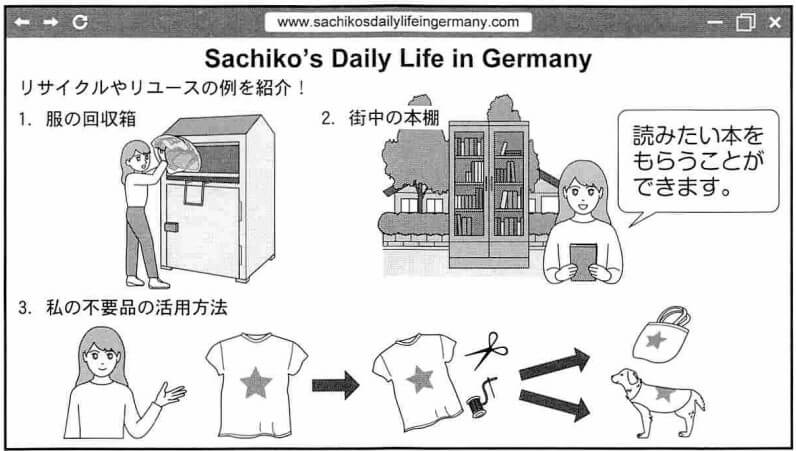
1 下線部( 1 )は何を指すか。本文から抜き出して書きなさい。
2 【 A 】に入るものとして、最も適切なものはどれか。
ア but I don’t buy new clothes so often
イ but I like shirts better than T-shirts
ウ so I buy a lot of clothes every season
エ so I’m happy to hear that you love clothes
3 下線部(2)のthatとはどのようなことか。15字以内の日本語で書きなさい。ただし、旬も字数に加えるものとする。
4 図を参考に、二人の対話が成り立つよう、下線部(3)、(4)、(5)に適切な英語を書きなさい。
5 二人の対話が成り立つよう、【 B 】に入る適切な英語を3語または4語で書きなさい。
6 本文中の ( C )、 ( D )に入る語の組み合わせとして、最も適切なものはどれか。
ア C: old ー D : long
イ C: old ー D : short
ウ C: new ー D : long
エ C: new ー D : short
7 英語の授業で、「今後、服を手放す際に、どのような手段を選ぶか」について、短いスピーチをすることになりました。
それに向けて、次の【条件】に合うよう、あなたの考えを書きなさい。
【条件】
①下の四角の枠内の四つの手段から一つをえらぶこと。なお、四角の枠内の例を参考にして書いてもよい。
② なぜその手段を選ぶのかという理由も書くこと。
③まとまりのある5文程度の英語で替くこと。
・売る
(例: フリーマーケットやオンラインで売る)
・他の人にあげる
(例: 兄弟姉妹や友達にあげる)
・寄付する
(例: 慈善団体に寄付する)
・リサイクルに出す
(例:リサイクルのためにお店に持って行く)
(本文和訳)
光:レオン、このTシャツ見て。昨日買ったよ。
レオン:かわいいね、だけど先週末新しいのを買ってなかった?
光:そう。服が大好きなの。
レオン:僕も、だけどとても頻繁に新しい服を買わないな。代わりに、お気に入りの服を何年も着る。
光:何年も?私は新しい流行が好きだから、いつもたった1シーズンだけ服を楽しむ。
レオン:とても短いね!あなたは、よく必要なくなった服を捨てるということを意味するの。
光:ええと、以前はそうしていたけど、やめたよ。クローゼットに着なくなった服を保管している。しかしながら、それらの服で何ができるか分からない。
レオン:私がドイツにいたとき、私の家族は”Kleidercontainer”を使っていました。
光:それは何?
レオン:それは古着を集めるための箱です。ウェブサイトを見せましょう。それはサチコという日本人女性によって作られました。彼女はドイツに住んでいます。ウェブサイト上のこの写真を見てください。これが Kleidercontainer です。
光:おお、とても大きい!サチコはその箱の中に服を入れた、合ってる?
レオン:その通り。そして、集められた服は他の誰かによってもう一度使われるか、リサイクルされるよ。
光:すごい!次のKleidercontainerの写真を見てください。道路上に本棚があるの?
レオン:それはOffentlicher Bucherschrankです。それは「公共の本棚」を意味します。必要なくなった本があれば、そこに持っていくことができます。
光:サチコは無料でその本棚から読みたい本を取ることができると言います!本当?
レオン:うん。ドイツにいた時、私は時々そうしたよ。
光:すごい!サチコは必要なくなったものをどのように使うか、他の方法も紹介しています。例えば、古いTシャツを使って、かばんを作ったり、ペットのための服を作ったりします。
レオン:ああ、これらの活動を”upsycling”と呼ぶ人がいるよ。
光:Upcycling?その言葉は今まで聞いたことがない。Upcyclingとは何か教えてくれない?
レオン:もちろん!必要ではないものがある時、あなたはそれを捨てるでしょう。しかしながら、必要ではないものから何か新しいものを作ると、あなたはまだそれを使うことができます。Upcyclingはあなたが使わないものに新しい価値を与えることができます。
光:面白い!このように、長い間ものを使うことができます。どうしたら服を他の方法で使うことができるか、もっと考えたいです。
1 T-shirt
2 ア
ア:しかしとても頻繁に新しい服を買わない。
イ:しかしTシャツよりもシャツの方が好きです。
ウ:だから季節ごとに多くの服を買います。
エ:だからあなたは服が大好きだと聞いて嬉しいです。
3 (例)不要になった服を捨てること。
thatは、前文のyou often throw away the clothes you don’t needを指している。
4
(3)例1:putting clothes into 例2:trying to put her clothes into
(4)例1:get books they want to read 例2:take a book they like
(5)例1:makes a bag 例2:made a bag
5 例1:Can you tell me 例2:Will you explain
6 ウ
7 例1:I will bring my used clothes to a shop near my house. I know the shop collects used clothes and recycles them. Now, I just throw away the clothes I don’t need because it is an easy way. However, I think I should stop it because my small action can save the earth. I want to be kind to the environment.
例2:I will give my clothes to my little sister. I have clothes which are too small for me, but my sister can still wear them. She often says she likes my clothes, so I think she will be happy. Also, it is good for our family because we don’t need to buy new clothes.
家庭教師のやる気アシストは、栃木県にお住まいの受験生のお子さんを毎年たくさん指導をさせ頂き、合格に導いています。
おかげさまで、昨年度の合格率は97.3%という結果を残すことが出来ました。
高い合格率の秘訣は、指導経験豊富な先生の指導力に加え、1対1の指導でお子さん一人ひとりの状況に合わせた、お子さんだけのカリキュラムで勉強が進められるから!
家庭教師のやる気アシストは、お子さんの志望校合格まで全力でサポートさせて頂きます!
お子さんにとって「成果が出る勉強法」ってどんな勉強法だと思いますか?
お子さんそれぞれに、個性や性格、学力の差もあります。そんな十人十色のお子さん全員に合う勉強法ってなかなかないんです。
たからこそ、受験生の今だけでもお子さんだけの勉強法で受験を乗り越えてみませんか?
やる気アシストには、決まったカリキュラムはありません。お子さんの希望や学力、得意や不得意に合わせて、お子さんだけのカリキュラムで指導を行っていきます。また、勉強法もお子さんそれぞれに合う合わないがあります。無料体験授業では、お子さんの性格や生活スタイルを見せていただき、お子さんにとって効率的な成果の出る勉強のやり方をご提案させて頂きます。

